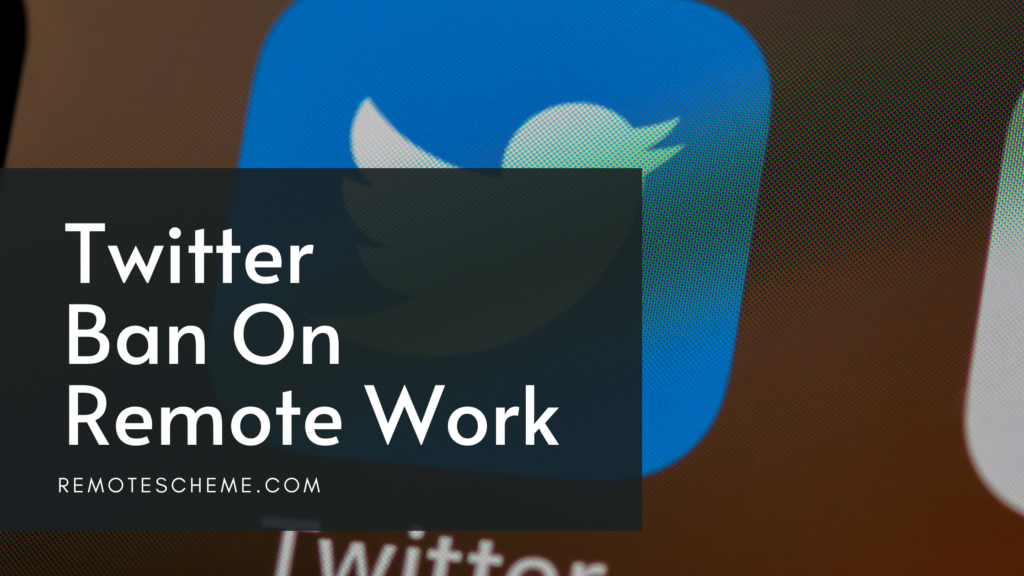In 2023, there’s more to remote work culture than pulling through the pandemic era. While it may have been provoked by lockdowns across countries, we’ve come to realize the benefits it holds.
As of now, nearly 5 million people working remotely in the United States.
Remote work culture refers to virtual working environments where every remote worker feels safe and valued. This encourages the team members to support their colleagues, engage in work completely, and foster company goals and missions.
To build a strong remote work culture in 2023, a company must set clear guidelines and expectations for remote work, provide remote workers with the necessary tools and technology, and encourage regular communication and collaboration.
It is also important to create opportunities for community building, recognize and reward remote workers, and foster a culture of trust and accountability.
A system must also be created to regularly collect feedback from remote workers and address their concerns. In this way, remote workers will feel supported, connected, and valued, increasing their overall productivity and engagement as a result.
With that in mind, here is how to build a strong remote work culture in 2023:
What Are The Signs Of A Strong Remote Work Culture?
Well, a clear sign of a strong remote work culture is simple. The employees need to feel like they belong to your company. They need to experience a bond or connection with their colleagues and the company’s goals.
Contented employees would create friendships with their colleagues and exchange positive ideas about the company.
One of the hallmarks of a functional remote work environment is an open line of communication. Also, active participation and contribution in team project planning sessions is another positive sign that indicates a strong remote work culture.
It is important to examine the performance of remote workers from time to time. Remote employees experiencing a strong working culture tends to be productive and often exceed expectations.
How To Build A Strong Remote Work Culture In 2023
#1. Enhance The Digital Onboarding Process
Are you recruiting new remote employees? Well, then you’ve got to set a tone of how they will think and feel about your company. In this case, virtual onboarding will come in handy.
It allows you to offer them what they need to succeed. What’s more, it also allows them to have a sense of belonging.
Besides sharing the work culture of your company, other important details you should discuss during the onboarding includes:
- The collaboration protocols
- The communication guidelines
- Measuring employee performance
- Expectations they need to fulfill
- How they will contribute to the company
- Work policies for remote staff
You want to introduce the new remote workers to the rest of the team. One way to do this is by a video conference call. As you do this, consider the new employee’s personality.
Is he or she an introvert or extrovert? The last thing you want to do is to spook them on the first day.
#2. Set Clear Goals
It’s important that everyone understands the company’s mission and goals and is working towards them. Set regular deadlines and make sure everyone is on the same page.
In writing or slide presentation, you should outline:
- Your goals as a company
- Values
- Mission
- Brand story
- Definition of appropriate cultural fit
#3. Foster Communication
Allow team members to communicate with each other regularly, whether through video conferences, phone calls, or instant messaging. Communication fosters collaboration that will help your company grow further.
#4. Recognize And Reward
Show appreciation for the work that remote team members do by recognizing and rewarding them for their efforts, especially when they go out of their way to achieve something.
While profit-making and a company’s financial growth is the ultimate goal of the company, it’s not enough to motivate your employees.
Recognition, praise, and reward systems must be created to keep remote workers motivated. Remote employees tend to feel left out since they don’t get feedback from their team leaders or supervisors as often as their in-office counterparts.
Because of this, they may experience low self-esteem.
It is very important to recognize and reward remote employees’ hard work when they do something out of ordinary.
#5. Promote Team Building
Remote teams tend to feel excluded since they are often working alone. That’s why team-building activities are vital. These activities enable all your employees to interact on a personal level.
Further, these social interactions enable them to learn about each other. More interactions mean better collaboration.
You can promote team building through the following ways:
- Coffee break meetings
- Hosting a friendly competition
- Scheduling meetings between departments on Slack
- Non-work-related Slack chats
#6. Encourage Team Collaboration
Encourage remote team members to work together to come up with innovative solutions to problems. Remember, the foundation of a successful team is collaboration. And this applies to all types of businesses.
Through collaboration, team members can communicate and share ideas. This fosters efficiency and respect among them. With collaboration, there’s so much your teams can accomplish.
#7. Provide Support
The best companies add value to their employees through career and personal development. You must provide the necessary support your employees need to become the best in their fields.
This essentially means creating incentives for self-improvement within the team.
Some of the ways to do this are through:
- Offering discounts on educational online courses
- Creation of mentorship programs within the company
- Hosting virtual conferences with industry leaders as guest speakers
- Internal workshops to learn new technologies
#8. Establish Engagement
Every company must take proactive steps to make sure that every remote team member feels included in the team. Take employee feedback seriously, and create a system that rewards people who contribute innovative ideas to the team.
Engaging remote workers requires regular virtual meetings, clear communication routes, a feeling of community, autonomy, and ownership, recognition and rewards, and regular feedback.
Engagement involves ongoing check-ins, open communication, and management’s involvement. This may keep team members engaged, build trust, motivate and produce, and create a pleasant and collaborative work atmosphere.
Final Thoughts
Culture is built on shared experiences, but it can be hard to create a consistent culture in virtual offices, where the work environment and hours can vary a lot.
Not only that, but it’s hard to build a sense of teamwork when people on the team are so spread out. But it is possible to make 2023 a good time to work from home.
Even though it might seem hard to spread and reinforce company culture across a dispersed workforce, it is not hard to build a strong culture for remote work.
If you take on a servant-leadership style, put the employee experience first, and take a deliberate approach to building virtual teams, your company will be in a good place to create a culture that is open, engaging, and healthy for everyone.




